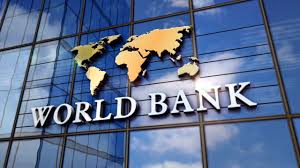Nigeria and other developing nations have been cautioned by the World Bank Group that raising interest rates simultaneously in response to rising inflationary pressure could result in a worldwide recession and a series of financial crises.
The Washington-based bank warned that the currently anticipated trajectory of interest-rate increases and other policy actions might not be enough to bring global inflation back down to levels seen before the pandemic in its latest study, “Risk of Global Recession in 2023 Rises Amid Simultaneous Rate Hikes.”
The synchrony with which central banks have been raising interest rates this year has not been seen in the previous 50 years, and it is probable that this trend will last far into next year, according to the report.
Investors anticipate that central banks will boost their average worldwide interest rates by more than two percentage points from their 2021 average through 2023, to about 4 percent.
The report’s model suggests that central banks may need to increase interest rates by an extra two percentage points in order to reduce global inflation to a rate that is consistent with their aims. If financial market stress was present at the same time, global GDP growth would fall to 0.5% in 2023, a per-capita contraction of 0.4% that would technically qualify as a global recession.
The study brought to light the unusually precarious circumstances that central banks were facing in their battle against inflation today. The research observed that a number of past global recession indicators were already flashing warnings.
It stated that after a post-recession rebound, the world economy was currently experiencing its greatest slowdown since 1970.
- Tags: #FG, #rates, #recession, #worldbank





